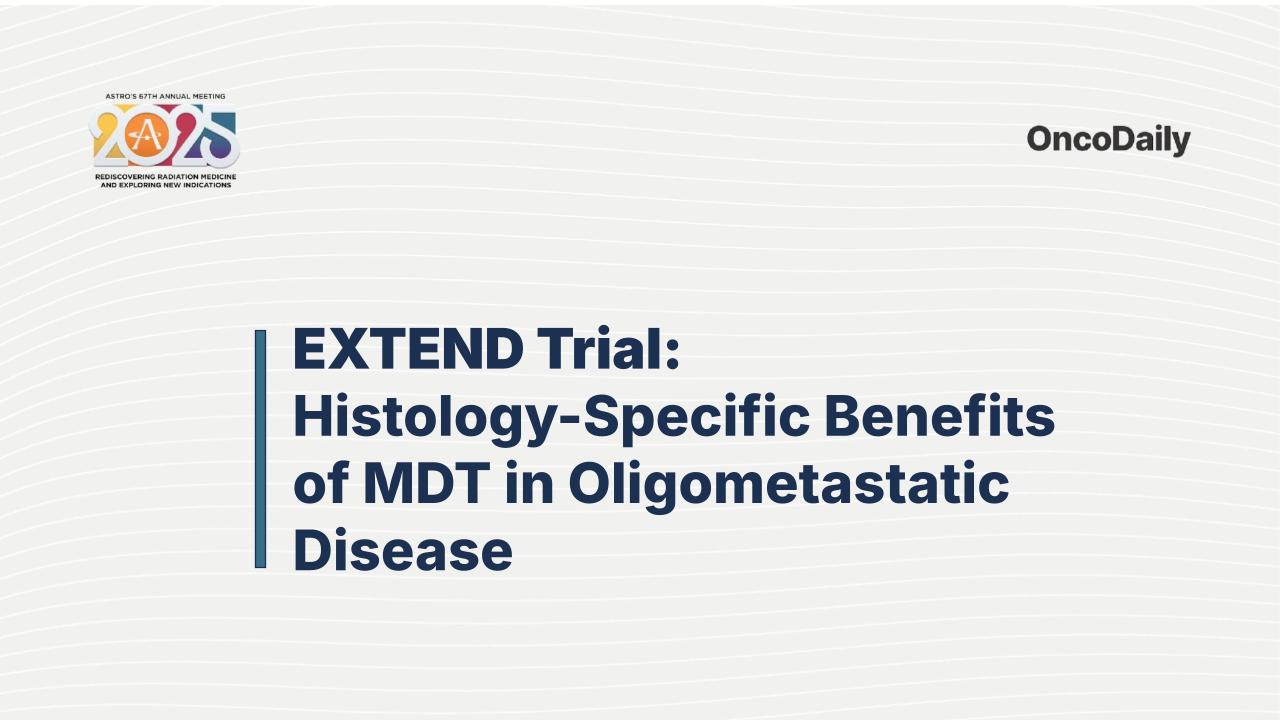The phase II EXTEND trial has demonstrated that the response to metastasis-directed therapy (MDT) for oligometastatic disease varies across tumor histologies, with progression-free survival (PFS) significantly improved in some histological baskets but not in others.
Study design
The EXTEND trial (NCT03599765) randomized 350 patients with 1–5 metastases to either standard of care (SOC) alone or SOC with MDT. The trial utilized a “basket” design, where independent histology-specific baskets (e.g., pancreas, prostate, breast, renal) were powered to detect improvements in PFS. The study aimed to explore the heterogeneity of the MDT effect across different tumor types, with a one-sided significance threshold of 0.10 for each basket.
Immune correlates were also collected, with T cell subsets assessed by multiparameter flow cytometry and T cell clonal expansion identified using paired T cell receptor (TCR) sequencing.
Results
In the aggregate population, PFS was significantly improved in the MDT+SOC arm, with a hazard ratio (HR) of 0.54 (95% CI 0.41–0.72), suggesting a robust benefit for the combined approach. However, the results were histology-dependent, showing varied responses across tumor types:
- Pancreas, prostate, and “other” baskets showed significant improvements in PFS with MDT, confirming the benefit of MDT in these tumor types.
- Breast and renal baskets, however, did not show significant differences in PFS between the MDT+SOC and SOC groups, indicating that MDT may not be universally effective across all histologies.
In terms of toxicity, the MDT+SOC approach had a 6% grade ≥3 toxicity rate (n=10/166), which remained relatively low, reflecting the safety profile of MDT.
Regarding immune responses, TCR expansion was significantly greater in the MDT+SOC arm compared to SOC, but this was observed primarily in the baskets where PFS improvement was seen. Furthermore, CD8+ T cell dynamics, specifically the activated PD1-Ki67+ subset, were correlated with improved PFS, with a notable association (HR 0.10, 95% CI: 0.03–0.33, P<0.001).
These immune findings were particularly important in the context of histology-specific benefits, where activated T cell expansion was observed to be greater in those groups showing PFS improvement, further supporting the role of immune modulation in MDT efficacy.
Takeaway
The EXTEND trial underscores the importance of tailoring treatment to tumor histology in oligometastatic disease. While MDT provides significant improvements in PFS for some cancers, particularly prostate and pancreas, the efficacy varies by histology. The trial also highlights the role of immune stimulation in mediating the therapeutic effects of MDT, with specific T cell expansions linked to better outcomes in certain tumor types. These findings suggest that while MDT is a promising approach for select patients, further research is needed to identify the most responsive tumor types and refine the therapeutic strategy.
Read More ASTRO 2025 Late-Breaking Abstracts Here
Written By Aren Karapetyan, MD
